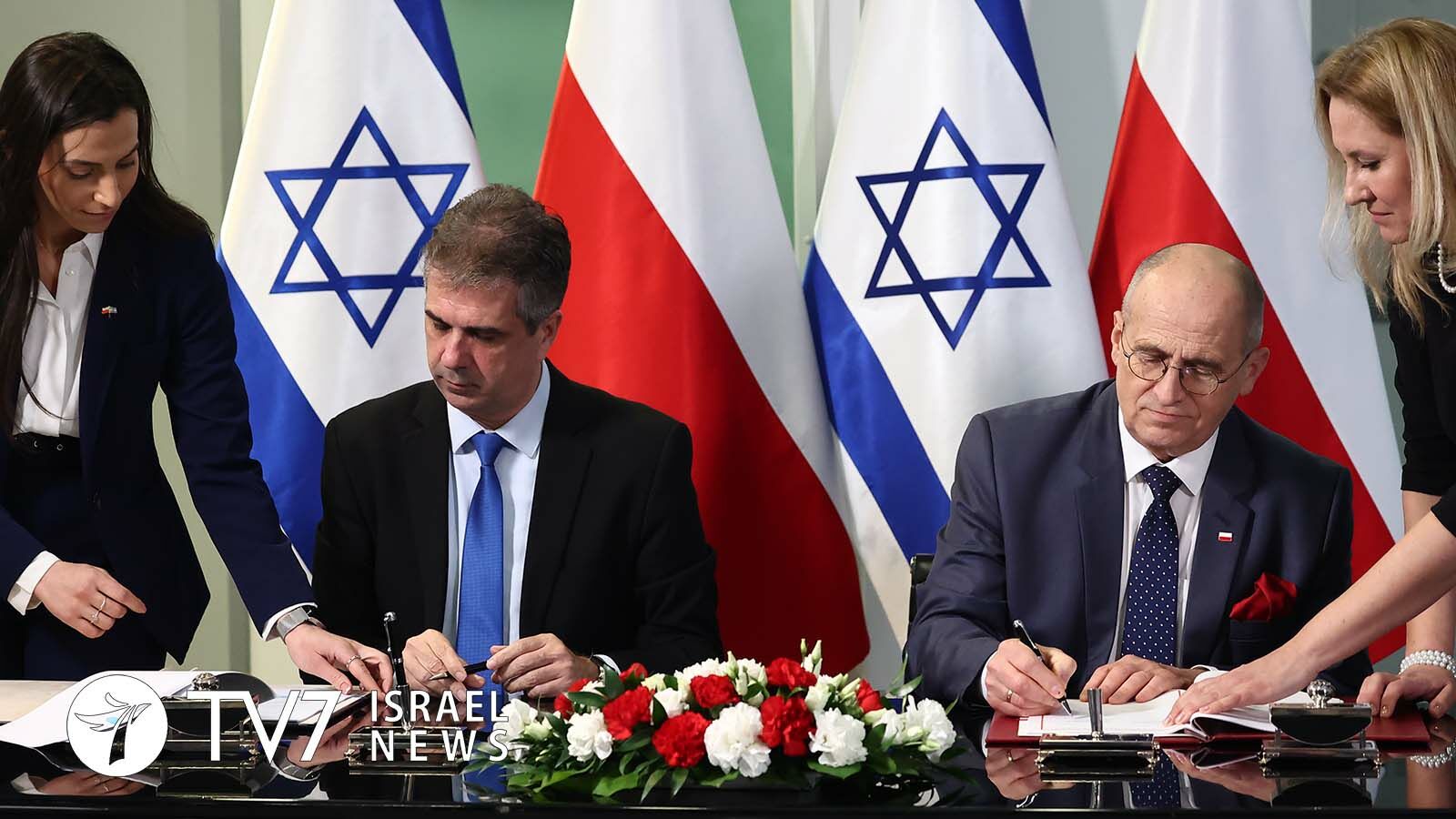Relations between the countries deteriorated over Poland’s introduction of sensitive legislation related to the Holocaust and World War Two.
By Erin Viner
Relations were severely strained by implementation of a 2018 law criminalizing any claims that Poland was complicit in Nazi German crimes committed during the Holocaust, as well as restrictions against Jewish efforts to recover property seized from them during WWII.
This past July, Poland and Israel pledged to improve relations, saying they would mutually restore ambassadors.
“The appointment of an ambassador to Israel will allow resumption of the ongoing diplomatic work that is required in the face of the challenges before us,” stated Israeli Foreign Minister Eli Cohen following the signing of an agreement in Warsaw.
Polish Foreign Minister Zbigniew Rau said that his nation “is preparing to almost immediately accept organized groups of Israeli young people according to the standards of Polish law and the new agreement.”
“This is an important moment in the relations between our countries and, I dare say, even between our nations. A moment that – without cynicism – has an element of history. I’m pleased that we signed an agreement that will allow the immediate resumption of the youth delegation to Poland,” said Jerusalem’s top diplomat.
The Israeli Ministry of Foreign Affairs also issued a statement affirming the start of “a new chapter in relations with Poland,” stressing that the restoration of the Polish ambassador to Israel and resumption of school trips to Poland “are important steps in strengthening the relations between the two states.”
Israeli Prime Minister Benjamin Netanyahu praised the restoration saying it symbolized a “positive step forward” in diplomatic relations with Poland.
On 7 March, the two nations announced reinstatement of the annual pilgrimages by Israeli 11th and 12th graders to sites in Poland to study the Holocaust and memorialize six million Jews killed during World War Two.
Nearly 50% of the 3 million Jews living in Poland before WWII were among those murdered by the Nazis and their collaborators. Many of the Third Reich’s most heinous concentration camps – including the Auschwitz-Birkenau extermination camp complex – were built in Poland after its 1939 occupation by Germany.
In addition to the dispute over Polish legislation restricting Jewish reclamation appeals, the trips were halted due to Warsaw’s unexpected decision to bar armed Israel Security Agency (ISA, Shin Bet) agents from providing security for the youth in contravention of previous arrangements. Jerusalem was also alarmed over what it saw as Warsaw’s attempts to control content of the studies in an effort to minimize local complicity by Polish collaborators in the genocidal Nazi campaign.
In 2022, Polish Deputy Foreign Minister Pawel Jablonski had asserted that the previous agenda needed to be revised “due to systematic problems leading to the strengthening of false stereotypes, which negatively impacts Polish-Israeli relations.”
The impasse over the visits was finally resolved in bilateral diplomatic talks at the Polish Ministry of Foreign Affairs earlier this month, when ISA representatives agreed with their Polish counterparts on an outline for the security of the youth delegations, and representatives of the Ministries of Foreign Affairs and Education led the discussion on the subject matter of the delegations.
“The resumption of the delegations is an important step towards a solution to the crisis in relations with Poland,” said Foreign Minister Cohen at the time, adding that the development is “an important decision both from an educational and national point of view. Preserving the memory of the Holocaust is one of the mainstays of the work of the Ministry of Foreign Affairs. We will continue to promote a solution to the crisis in relations with Poland.”
Israeli Minister of Education Yoav Kisch said he also welcomed “this is a very significant decision of exceptional national importance and values,” which is of “great importance in imparting the memory of the Holocaust and the study of our heritage as a nation to all Israeli students.”
Israeli Prime Minister Benjamin Netanyahu hailed the agreement, saying that “the lessons of the Holocaust can be learned in many ways, but there is nothing better than seeing for yourself.”
